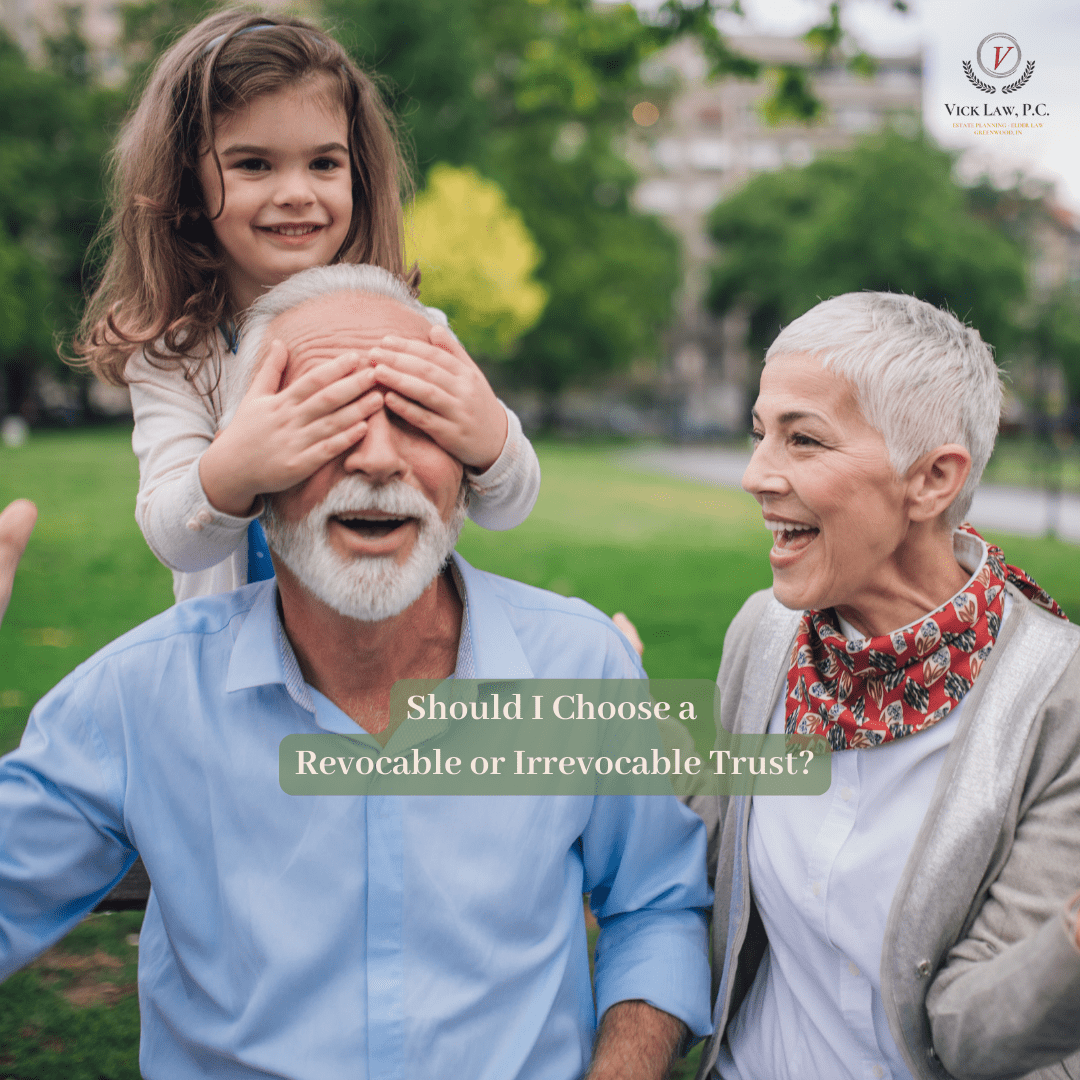In the realm of estate planning, the choice between a revocable and an irrevocable trust can be a pivotal decision. Both options offer unique advantages and cater to different needs, making it essential to understand the distinctions. Today we'll explore the intricacies of these trust types, helping you make an informed decision that aligns with your estate planning goals and aspirations.
What is a Trust?
Kiplinger’s recent article entitled, “What to Consider When Deciding Between a Revocable and Irrevocable Trust,” explains that, as a legal entity, a trust can own assets such as real estate, brokerage accounts, life insurance, cars, bank accounts and personal belongings, like jewelry. You transfer over the title and ownership of these assets to the trust. The instructions state what should happen to that property after you die, including who should receive it and when.
Revocable Trust
A revocable trust keeps your options open. As the grantor, you can change or revoke the trust anytime. This includes naming a different trustee or beneficiary. This gives you leverage over the inheritance. If your beneficiary doesn't listen to you, you can still change the terms of the trust. You can also even take your assets back from a revocable trust. There are typically no tax consequences for doing so because only after-tax assets can be placed in a trust while you're alive.
If a revocable trust seems much like owning the assets yourself, that's because there's really little difference in the eyes of the law. Assets in your revocable trust still count as part of your estate and aren't sheltered from either estate taxes or creditors. However, it's a smoother financial transition if something happens to you. If you die or can no longer manage your financial affairs, your successor trustee takes over and manages the trust assets according to your directions in the trust documents.
The second reason to have a revocable trust is that the trust assets bypass probate after you die. During probate, a state court validates your will and distributes your assets according to your written instructions. If you don't have a will, your property is distributed according to state probate law. If you own homes in multiple states, your heirs must go through probate in each one. However, if that real estate is in a revocable trust, your heirs could address everything in your state of residence and receive their inheritance more quickly.
The contents of your revocable trust also remain private and out of bounds, whereas estates that go through probate are a matter of public record that anyone can access.
Irrevocable
An irrevocable trust is harder to modify, and even revocable trusts eventually become irrevocable when the grantor can no longer manage their own financial affairs or dies. To change an irrevocable trust while you're alive, the bar is high but not impossible to overcome. However, assets in an irrevocable trust generally don't get a step up in basis. Instead, the grantor's taxable gains are passed on to heirs when the assets are sold. Revocable trusts, like assets held outside a trust, do get a step up in basis so that any gains are based on the asset's value when the grantor dies.
In the intricate world of estate planning, the choice between a revocable and an irrevocable trust is akin to selecting the right tool for a specific job. Each serves a unique purpose, and the best choice depends on your individual circumstances and goals. At Vick Law, P.C., we are experienced in guiding individuals and families through the complexities of estate planning, including trust selection. If you find yourself pondering this pivotal decision or require tailored advice, don't hesitate to reach out to us. Your future deserves the right plan, and we're here to help you build it.
Reference: Kiplinger (July 14, 2021) “What to Consider When Deciding Between a Revocable and Irrevocable Trust”


